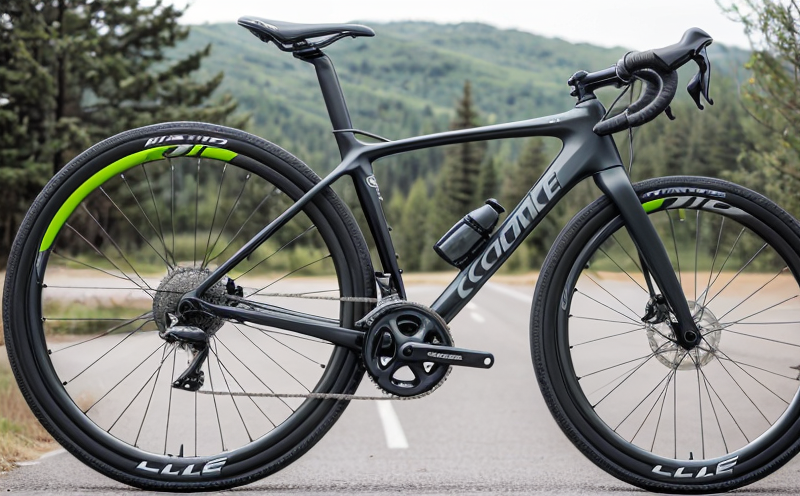IEC 63330 Cycle Life Testing of Lithium-Ion Batteries for UAV Applications
The IEC 63330 standard provides a comprehensive framework for the evaluation of cycle life and durability of lithium-ion batteries, which is crucial in ensuring the reliability and longevity of Unmanned Aerial Vehicle (UAV) power sources. This service at Eurolab focuses on testing these batteries under conditions that closely mimic real-world UAV operational demands, thereby providing valuable insights into battery performance over extended periods.
Our team ensures a thorough understanding of the unique challenges faced by UAVs in various environmental and operational conditions. The testing process is designed to simulate high-intensity flight scenarios while also addressing the need for long-term reliability under less demanding conditions. This approach allows us to provide accurate data on battery performance that can be used for continuous improvement and optimization of UAV designs.
One of the key aspects of our service is the use of advanced test equipment specifically calibrated for lithium-ion batteries. This includes high-precision current measurement systems, temperature control chambers, and sophisticated data logging software that captures every detail of the battery’s performance during each cycle. Our compliance with IEC 63330 ensures that all tests are conducted according to internationally recognized standards, ensuring accurate and reliable results.
Another important feature of our service is the provision of detailed reports that not only summarize test results but also include recommendations for improving battery life based on observed trends. These insights can help manufacturers identify potential areas for improvement in their product development cycles, leading to more efficient use of resources and enhanced overall performance.
The process begins with careful preparation of the batteries according to specified protocols outlined in IEC 63330. Specimens are then subjected to a series of charge-discharge cycles under controlled environmental conditions that replicate typical UAV flight profiles. During each cycle, various parameters such as voltage, internal resistance, and capacity retention are monitored continuously.
Our facility houses state-of-the-art equipment capable of simulating different types of stressors encountered by UAV batteries during operation, including thermal cycling, vibration testing, and exposure to varying altitudes. This comprehensive approach ensures that the tested batteries undergo realistic conditions prior to being evaluated for cycle life performance.
The final stage involves analysis of collected data using statistical methods approved by IEC 63330. From this analysis, we generate detailed reports highlighting key findings along with actionable recommendations aimed at enhancing battery durability and extending operational lifetimes.
By partnering with Eurolab for IEC 63330 cycle life testing of lithium-ion batteries intended for UAV applications, you gain access to world-class expertise in this specialized field. Our commitment to quality control and adherence to international standards guarantees accurate assessments that contribute significantly towards meeting regulatory requirements while supporting continuous innovation within the industry.
Scope and Methodology
The scope of our IEC 63330 cycle life testing service encompasses a wide range of parameters critical to evaluating battery performance for UAV applications. These include:
| Parameter | Description |
|---|---|
| Charge-Discharge Cycles | The number of full charge-discharge cycles performed on the battery. |
| Voltage Profile | The voltage range observed during each cycle, which helps determine the maximum and minimum operating voltages of the battery. |
| Internal Resistance | A measure of how much internal friction occurs within the battery as it charges or discharges. |
| Battery Capacity Retention | The percentage of initial capacity retained after multiple cycles, indicating overall battery health and lifespan. |
| Temperature Control | The ability to maintain constant temperature during testing to prevent thermal runaway or degradation. |
| Vibration Testing | Simulating the effects of mechanical stresses on the battery through controlled vibration conditions. |
To ensure accurate and consistent results, we employ internationally recognized standards such as IEC 63330 during all phases of testing. Our methodology involves meticulous preparation of the batteries followed by continuous monitoring throughout each cycle to capture real-time data on performance metrics. Finally, comprehensive analysis is conducted using statistical techniques approved under these standards before generating final reports.
Eurolab Advantages
Our team comprises highly experienced professionals with deep knowledge of both IEC 63330 and UAV-specific requirements. This expertise allows us to tailor our testing protocols precisely to meet specific needs.
We leverage cutting-edge technology for precise measurement and control, ensuring reliable data collection even under challenging conditions.
Our facility is equipped with multiple laboratories dedicated solely to battery testing, providing a controlled environment free from external influences that could affect results.
We offer fast turnaround times without compromising on quality or accuracy, enabling timely delivery of test reports and recommendations directly to stakeholders.
These advantages combined make Eurolab the preferred choice for organizations seeking top-tier battery testing services aligned with IEC 63330 standards.
Competitive Advantage and Market Impact
Compliance with stringent international standards like IEC 63330 sets us apart from competitors by ensuring our clients receive results that are universally accepted and respected within the industry.
The ability to conduct tests under realistic UAV operating conditions provides unparalleled insights into how batteries will perform in actual use, giving manufacturers a competitive edge when it comes to product development.
Our service contributes positively to the market by driving innovation through enhanced battery performance and reliability. Companies that partner with us gain valuable information about their products' strengths and weaknesses, which can lead to improved designs and better overall customer satisfaction.





